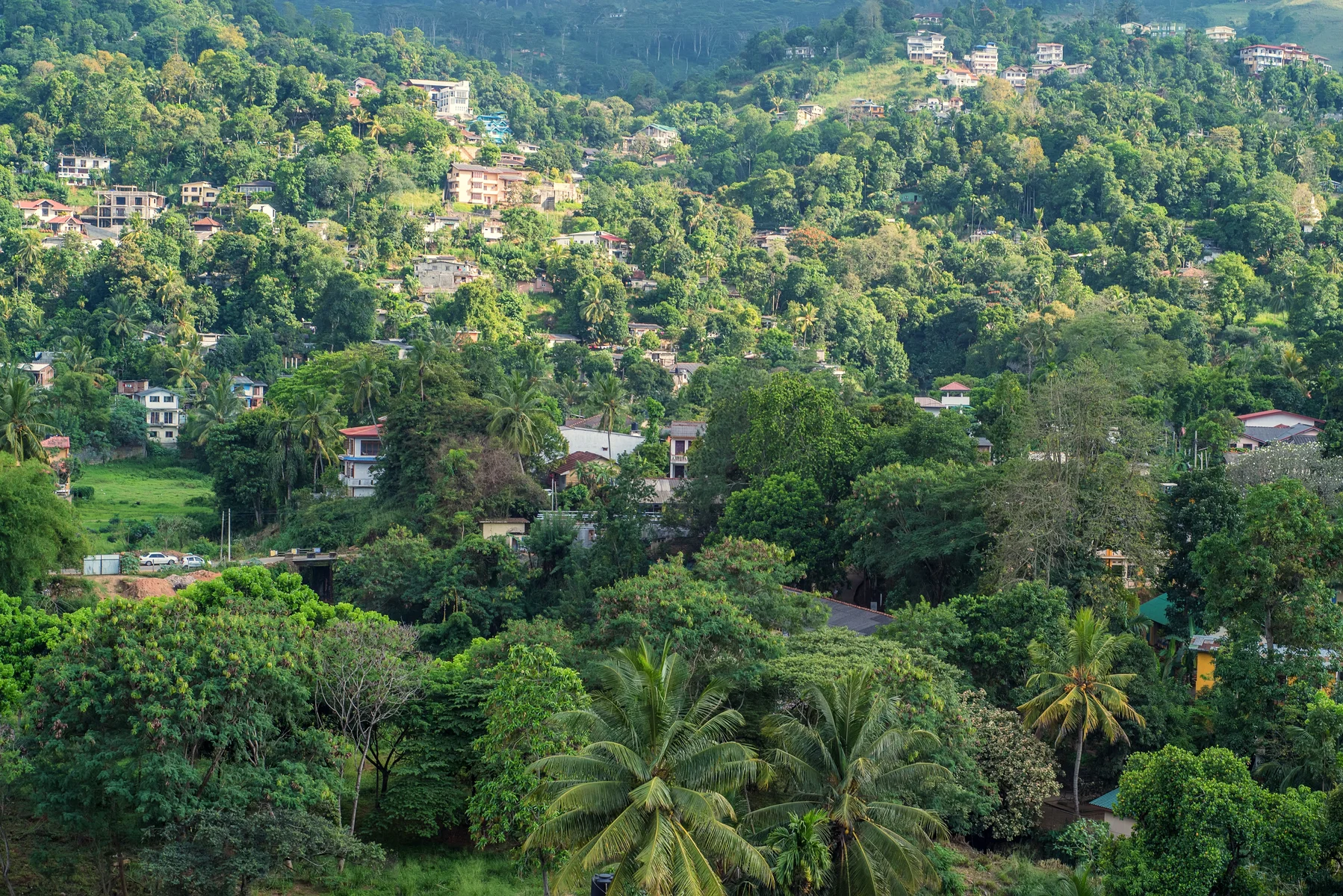
No Property Taxes: Complete List of Countries with Details
Property tax is levied by the authorities in most countries of the world every year or every six months; its rate depends on the total value of your property. But there are some countries where there is no such tax. In this text, we give a complete list of countries where there is no estate tax for residents and non-residents, or where it is quite symbolic.
It is important to point out that before you buy a house in a country where there is no estate tax, you should pay attention to stamp duty. Stamp duty is another type of tax that the government usually charges on the purchase of a property. The good news, however, is that this fee is typically one-time. For those looking for assistance with writing reports or papers on topics like this, the essay writing service at Academized can help streamline the process and provide quality insights.
Europe
Georgia
Property tax in Georgia is payable by individuals (both residents and non-residents)— Articles 201, 202 of the Tax Code of this country stipulate this. The tax rate is 1% of the market value of the property. This fee must be paid annually.
If the annual income is less than 40,000 GEL (about $17,000), an individual is exempt from tax on any property in Georgia.
Land is taxed at a different rate of 0.24 GEL ($0.08 USD) per year as property tax for any 1 square meter of non-agricultural land. That said, foreigners are not allowed to own agricultural land in Georgia.
Croatia
In Croatia, only owners of resort accommodations are taxed—they pay to the municipal budget 5-15 kuna (€0.7-2.0) per square meter.
In Croatia, the real estate purchase tax, also known as the real estate transfer tax, is set at 3% of the market value at the time of purchase. This is relevant for both citizens of the country and foreigners.
As for the tax on rental income, the tax rate is 12% for both residents and non-residents. For income from rental property for non-tourist purposes, if the income is less than €40,000 per year, the effective tax rates range from 7% to 8.2%. When renting out real estate for tourism purposes by Croatian tax residents, a reduced lump sum tax applies, the exact amount of which is determined by the local municipality.
Liechtenstein
There is no property tax in Liechtenstein. However, it is important to note that the sale of real estate may be subject to capital gains tax (this is true for both individuals and companies), and its rate can be up to 24%. Capital gains tax may also apply to the sale of a controlling interest in a real estate company.
In Liechtenstein, rental income is subject to income tax. The income tax rates are progressive and range from a minimum of 3.24% to a maximum of 17.01%. In addition, there is a community tax, which is a surcharge on the national income tax due, with communities levying a surcharge ranging from 150% to 180%.
Monaco
In Malta, there are no property taxes. In the case of rental property, the tax on income is usually 1% of the amount received for the year, but the tenant usually pays this tax.
If you dispose of your property, you will also be responsible for paying income tax. Any gain from the sale of real estate is taxed at 33.3%.
Malta
Malta does not impose any estate tax; however, upon the transfer of immovable property, withholding tax is levied at a rate that varies from 5% to 12%. Malta also applies a stamp duty of 5% for both residents and non-residents on the transfer of immovable property. On the island of Gozo, on the other hand, there is a preferential rate of 2%.
It should be mentioned separately that ownership of real estate in Malta is not taxed. However, if you rent out your object, the tax is charged at 15% of the income received.
Faroe Islands
If you are a tax resident of the Faroe Islands, the government has the right to impose a tax on any income received from renting property located outside the country.
Although there are no property taxes on the islands, non-resident individuals must pay taxes when they receive rental income from their property. Plus, even if income from renting property overseas is not taxable, people must report this information on their tax returns in order to receive tax deductions.

Middle East and Asia
UAE
Real estate in the United Arab Emirates is not taxed at the national level. However, in certain cases, tenants and property owners are responsible for paying their individual fees. For example, Dubai currently has a municipal property tax of 2.5% of the annual rental value for commercial properties and 5% for residential properties. Usually, the tax on commercial properties is paid by the owners, and the tax on residential properties is paid by the tenants.
Note that in June 2023, Dubai introduced a corporate tax of 9% on income exceeding AED 375 thousand. The tax applies to all businesses and individuals with trade licenses operating in the domestic market of Dubai, except those located in free economic zones.
Bahrain
Bahrain is a small island nation in the Arabian Gulf. Known as the “Pearl of the Gulf,” Bahrain has a storied past that dates back to ancient civilizations, with archaeological evidence revealing its significance as a trading hub. Today, the country stands as a beacon of progress in the region, driven by its thriving financial sector, booming tourism industry, and innovative urban development.
In the Kingdom of Bahrain, no real estate tax is levied on the alienation or lease of land and buildings—this applies to transactions for both residential and commercial properties. There is also no tax liability for newly constructed buildings.
However, when registering or transferring real estate in Bahrain, a stamp duty applies, which is 2% of the value. This fee can be reduced to 1.7% if paid within 60 days after the completion of the transaction.
Qatar
Real estate in Qatar is characterized by the absence of property taxes. This means that individuals who own property, whether it's residential or commercial, do not have to pay an annual property tax based on the value of their property. This tax policy is in contrast to many other countries where property taxes are a common source of local government revenue.
Kuwait
Kuwait stands as a testament to both historical significance and modern ambition. With a rich cultural heritage rooted in its seafaring and trading past, Kuwait has grown into a dynamic nation known for its economic prosperity and strategic importance. The country's iconic skyline is dominated by sleek modern architecture and towering skyscrapers, reflecting its status as a thriving business hub in the region.
There are no real estate taxes in Kuwait.
In Kuwait, income earned from renting out property is subject to income tax, with a 10% rate on rental income.
For example, if you rent out a property for $1000 per month, the annual rental income would be $12,000 ($1000 * 12 months). Then the annual tax on rental income would be $12,000 * 10% = $1200.
Oman
In Oman, residents and businesses are exempt from paying property taxes and stamp duties. However, when transferring property, a fee of 3% of the value of the land or property being transferred is required to be paid to the Ministry of Housing. In addition, a municipal tax of 3% applies when renting out the property.
Saudi Arabia
Saudi Arabia does not levy taxes on real estate. However, there is a white land tax. This tax requires owners of vacant, unused, or undeveloped land in urban areas intended for residential or commercial use to pay a 2.5% annual tax on the market value of the land.
There is also a real estate transaction tax, which is 5% of the total value of the property being sold. This tax applies to real estate regardless of its condition or purpose at the time of sale.
Cambodia
Technically, there is an annual property tax in Cambodia, but it is small and amounts to only 0.01% of the total assessed value. Suppose you bought a house in Cambodia for $200,000—then, the property tax for you will only be $200. In addition, the country is charged stamp duty at a rate of 4% of the value of the real estate.
In Cambodia, the tax on rental income varies depending on whether the landlord is a Cambodian citizen or a non-resident. Cambodian citizens are liable to pay tax at a rate of 10% on gross rental income, while non-residents are subject to a higher tax rate of 14%.
Gross rental income is the amount agreed upon in the lease agreement for the leased property. For example, if a Cambodian citizen rents a property for $500 per month, the annual rental tax would be $500 * 10% = $50 per month, or $600 per year.
For non-residents using the same rental income of $500 per month, the annual rental tax would be $500 * 14% = $70 per month, or $840 per year.
It is important to note that these tax rates apply to total rental income. So, for example, if a Cambodian citizen rents out an apartment complex of 5 apartments at $800 per unit per month, the annual rental tax would be ($800 * 5 apartments) * 10% = $400 per month, or $4800 per year.
Thailand
Thailand has introduced an annual tax on residential property ownership since 2020. However, the condominium ownership tax (foreigners only have the right to own condominiums) remains very low. Annually, you will need to pay 0.03% of the contract value of the property, but only if its value exceeds 10 million baht (about $274 thousand).
You will also have to pay a commission on the first purchase of the property in Thailand. The transfer tax is 2% of the appraised value. Usually, the seller pays all or at least half of this amount, depending on the arrangements.
Detailed tax rates can be found here.
Non-resident individuals earning rental income in Thailand are subject to a flat tax rate of 15%.
Israel
In Israel, property owners pay a municipal fee known as the arnona. The amount of the tax usually depends on the area of the property and its location in the region.
On average, the monthly municipal fee is about $60 (200 shekels). Some categories of citizens, such as new repatriates, receive a discount on the arnona.
Sri Lanka
Nestled like a teardrop in the Indian Ocean, Sri Lanka is a captivating island nation that weaves together a rich tapestry of history, culture, and natural beauty.
In Sri Lanka, there is no property tax. Non-residents must pay only tax on rental income at a rate of 20%.
Also, when buying property in Sri Lanka, stamp duty is charged, which ranges from 3% to 4% of the value of the object.

Caribbean
Cayman Islands
The Cayman Islands, a trio of enchanting islands nestled in the Caribbean Sea, exude a sense of paradise and exclusivity. Beyond the stunning natural beauty, the Cayman Islands are also known for their thriving offshore financial sector and as a desirable destination for expatriates.
In the Cayman Islands, there is no property tax, personal income tax, corporate income tax, capital gains tax, VAT, or payroll tax. In addition, there is no withholding tax on dividends, interest, royalties, or fees for technical services. In the Cayman Islands, gift tax and capital gains tax also do not apply.
Dominica
Often referred to as the “Nature Isle of the Caribbean,” Dominica boasts a diverse array of ecosystems, from lush rainforests and cascading waterfalls to volcanic craters and colorful coral reefs. This island nation stands out for its commitment to preserving its environment and sustainable tourism practices, offering a haven for eco-adventurers and nature enthusiasts.
In Dominica, there is no concept of property tax. However, residents of the towns of Canefield and Roseau are required to pay a municipal tax, whose rate varies and averages 1.27% of the current market value of the object.
If property owners decide to rent out their property, they will have to pay a 1% income tax. Property transfer tax applies to gifts under certain circumstances. Frequently, a contribution of 1% of the transferred property's value is needed for a financial security fund, which is also subject to VAT at a rate of 15%.
Turks and Caicos Islands
The Turks and Caicos Islands are located in Central America in the Atlantic Ocean near the Bahamas and Miami. Not only property but also individual and corporate income, capital gains, and inheritance are not taxed here.
Oceania
Fiji
This state is located on the archipelago of the same name between New Zealand and Hawaii. There are no property taxes at the national level here. However, municipalities in different areas can make their own decisions about this, so you have to consider it on a case-by-case basis.
Cook Islands
The Cook Islands is a sovereign territory of New Zealand, consisting of 15 islands and atolls. There is no estate tax, no wealth tax, and no capital gains tax. However, it is worth noting that the process of acquiring property in the Cook Islands may require some additional effort.
Africa
Seychelles
Residents of the Seychelles are not subject to real estate tax. And for non-residents, it is 0.25% of the market value of their residential apartments, condominiums, and villas.
In Seychelles, property purchase tax, also known as stamp duty, is set at 5% of the sale price for Seychellois citizens or companies. For non-Seychelles citizens, stamp duty can range from 11% to 17.5%. In addition, notary fees of 2% are usually charged.
Regarding tax on rental income, non-resident individuals are taxed at a flat rate of 15%.
Other Taxes and Fees Related to Real Estate
While the countries listed may not have an annual property tax, it is important to consider other taxes and fees that may arise when buying, owning or selling real estate:
- Stamp duty: many countries charge stamp duty on the purchase of real estate. For example, it is 5% in Malta and 2% in Bahrain.
- Property transfer tax: some countries, such as Croatia, charge a property transfer tax (3% of the market value) on the purchase of real estate.
- Rental income tax: even in countries without a real estate tax, there may be a tax on rental income. For example, it is 10% in Kuwait and 15% in Malta.
- Capital gains tax: capital gains tax may be levied on the sale of real estate. In Liechtenstein, for example, it can be as high as 24%.
- Municipal levies: some countries, such as the UAE, may have municipal levies that effectively replace the real estate tax.
Summary table of the main real estate taxes in the listed countries:
|
Country |
Property tax |
Purchase tax |
Tax on rental income |
|
Bahrain |
No |
2% |
No |
|
Georgia |
1%**** |
No |
No**** |
|
Dominica |
No** |
1% (sometimes) |
1% |
|
Israel |
$60 per month |
No |
No |
|
Cayman Islands |
No |
No |
No |
|
Cambodia |
0,01% per year |
4% upon purchase |
For Cambodian citizens, 10% of gross rental income; for non-residents, 14%. |
|
Qatar |
No |
No |
There is for foreigners |
|
Kuwait |
No |
No |
10% |
|
Liechtenstein |
No |
No |
From 3.24% to 17.01% |
|
Malta |
No |
5%–12% (2% for Gozo) |
15% |
|
Monaco |
No |
No |
1% |
|
UAE |
No |
No |
2,5–5% in Dubai |
|
Oman |
No |
3% upon purchase |
3% municipal |
|
Cook Islands |
No |
No |
No |
|
Turks and Caicos Islands |
No |
No |
No |
|
Saudi Arabia |
No |
5% upon sale |
No |
|
Seychelles |
0,25% for non-residents |
5%–17.5% |
15% |
|
Thailand |
0,03% per year* |
2% when you buy |
15% |
|
Faroe Islands |
No |
No |
There is for non-residents |
|
Fiji |
No |
No |
No |
|
Croatia |
No, except for the resort |
3% |
12% |
|
Sri Lanka |
No |
3–4% upon purchase |
20% for non-residents |
* Only if the property value exceeds 10 million baht (about $274,000).
** Except for the municipal tax in Canefield and Roseau Townships (about 1.27% of the market value).
*** Some municipalities may impose their own taxes. **** If annual income is less than 40,000 GEL (about $17,000), no tax is levied.
Note: this table provides a general overview of real estate taxation in the above countries. Tax rates and regulations are subject to change, so it is recommended to consult with local tax experts before making investment decisions.
Frequently Asked Questions (FAQ): Countries Without a Property Tax
What is property tax?
Are there any countries that have no property tax at all?
If a country has no property tax, does that mean that owning real estate there is completely free?
Which countries in Europe do not have a property tax?
Are there any countries in the Middle East without a property tax?
Does the lack of a property tax affect other taxes in the country?
Can foreigners enjoy the same tax benefits as locals?
Should one choose a country to buy real estate in just because there is no property tax?
Author
I am responsible for editorial work. I write expert interviews and guides.























